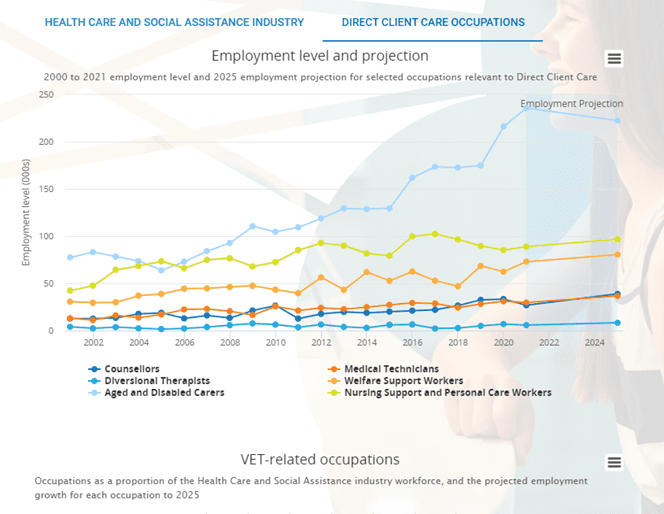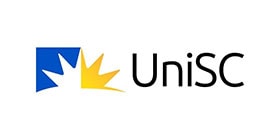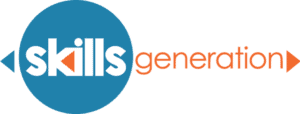

If you want a rewarding career in the rapidly growing care sector where you can enjoy variety in your work while making a positive difference to the people you are supporting, this course is for you.
You can choose to specialise in Disability, Ageing or Ageing and Disability!
CHC33021 Certificate III in Individual Support is designed for those seeking a rewarding career in aged and disability care services for clients living in residential care or in their homes in the community. This course will teach you the skills to fulfil the critical functions of personal carers and effectively support older people and those living with a disability in a wide range of community and social based activities and settings. Students may choose to focus on an area of specialisation that provides skills and knowledge to effectively provide person-centred individualised support to older people and those with a disability to ensure they have fulfilling lives in which they can reach their potential. You will learn how to contribute as a team member in a home and community care environment or residential care setting and meet individualised and personal support needs. You will gain a range of factual, technical and procedural knowledge, as well as some theoretical knowledge of the concepts and practices required to provide person-centred support.
Work involves using discretion and judgement in relation to individual support as well as taking responsibility for your own outputs within the scope of your job role and delegation. You will work under supervision and delegation as a part of a multi-disciplinary team, following an individualised plan to provide person-centred support to people who may require support due to ageing, disability or some other reason.

You will:
The Direct Client Care and Support sector includes a range of multi-skilled and multi-levelled job roles in diverse health care and social assistance sub-sectors. People working in these job roles are involved in undertaking administrative, assistant, operating (i.e. technician), direct personal care and/or supervisory activities in the following sub-sectors:
Nationally recognised qualifications for occupations related to Direct Client Care and Support are delivered under the CHC – Community Services Training Package and the HLT – Health Training Package.

Australian Industry and Skills Committee data 8.11.2021
Individual Support/Direct Client Care work is focused on providing person-centred, individualised support to Aged people and those with a Disability. The work involves assisting individuals to perform day to day functions and supporting them to meet their needs and goals so they can live fulfilling, active lives within their community.
Workers build strong professional connections and relationships with those they actively support. Work across the sector is varied and can involve working across residential, and community-based settings, assisting people to undertake personal care and access communities and activities of their choice.
Home and community work is focused on providing personalised community-based support to older individuals and those living with a disability usually in their own home.
Key support tasks can include:
Depending on the area of specialisation this work is often undertaken through employment in disability sector organisations, aged care residential facilities, government services and broader community service agencies. Workers will be:
15 units of study – nine core and six elective units of competency. No pre-requisites.
Learners may elect to enrol in either CHC33021 Certificate III in Individual Support or choose from one of the following specialisations:
CHC33021 Certificate III in Individual Support (Ageing)
CHC33021 Certificate III in Individual Support (Disability)
CHC33021 Certificate III in Individual Support (Ageing and Disability)
All students will be required to complete the nine core units of competency listed.
They will then be required to complete the six electives related to their chosen
specialisation
The Australian Qualifications Framework determines that the duration of this qualification is 1 – 2 years, however with both face-to-face training, and flexible online learning, learners are typically completing within the first 6 – 12 months. How quickly an individual is able to complete the course will depend on how fast they work through the content, their commitment to learning and their level of competence.
120 hours of vocational work placement in a relevant community services, disability services or aged care setting is required.
Students need to find their own work placement with an organisation approved by Skills Generation. It is important to find a work placement at the beginning of the course. Skills Generation staff and your trainer will be available to assist you to identify suitable organisations.
Students who are already employed in an appropriate care setting may be able to undertake their work placement with their employer and their current experience may satisfy the work placement requirements. You can review your work history with your Skills Generation trainer prior to commencing the course to see if your experience can be used.
Students are responsible for the cost of any travel and accommodation that may be associated with work placement. Skills Generation insurance covers students undertaking course requirements while on work placement.
Please refer to the relevant Government website/s for the most up to date information regarding any restrictions and vaccination requirements that may be in place, please also be aware that work placement employers may have certain requirements in relation to vaccinations or other restrictions in addition to any mandated by government. If you have any questions regarding requirements for work placement, please contact Student Services [email protected]
May include:
May include:
On successful completion of this course you will receive the nationally recognised qualification:
CHC33021 Certificate III in Individual Support
The qualification names that will be awarded if you meet the requirements for a specialisation are:
CHC33021 Certificate III in Individual Support (Ageing)
CHC33021 Certificate III in Individual Support (Disability)
CHC33021 Certificate III in Individual Support (Ageing and Disability)
The qualification is awarded by Skills Generation RTO 41008, with training and assessment delivered by Skills Generation or an approved Third Party training provider on behalf of Skills Generation.

The Commonwealth Government requires all learners undertaking nationally recognised, accredited training courses to have a Unique Student Identifier (USI). Learners are unable to enrol without their USI.
If you are currently working, or have previously worked in a relevant industry, you may be eligible for Recognition of Prior Learning (RPL). RPL applies where you have workplace experience/competency that can be formally assessed against the units of competency in this course. If you wish to undertake an RPL process, please discuss with our Student Services enrolments team.
This course currently attracts government funding for eligible students. Depending on the funding program, students who access funded training may be required to pay a co-contribution fee that represents a small fraction of the total course fee.
Students eligible for subsidised training under government funding programs can normally only access the funding once, so it is important that you choose your course carefully.
Eligibility criteria for funding can be found on our Funding and Fees page or contact us to discuss your circumstances and determine your eligibility.
Students who are not eligible for subsidised training pay the full course fee.
Payment Plans are available through the PaySmart payment platform making it easy for students to make weekly, fortnightly or monthly payment instalments.



On completion of this course you may want to further enhance your skills and knowledge and your job promotion prospects by going on to study:
CHC43015 Certificate IV in Ageing Support
CHC43121 Certificate IV in Disability Support
Skills Generation proudly partners with select Australian Universities to provide pathway options for university study. University pathways include guaranteed entry and credit for Skills Generation graduates of Certificate IV and Diploma qualifications.




If you need more information about a course, want to see if you qualify for government funding or have any other questions, we’re here to help!

Proudly Australian Owned and Operated
PO Box 5419, Maroochydore BC QLD 4558 Australia
17/1 Newspaper Place Maroochydore QLD 4558 Australia